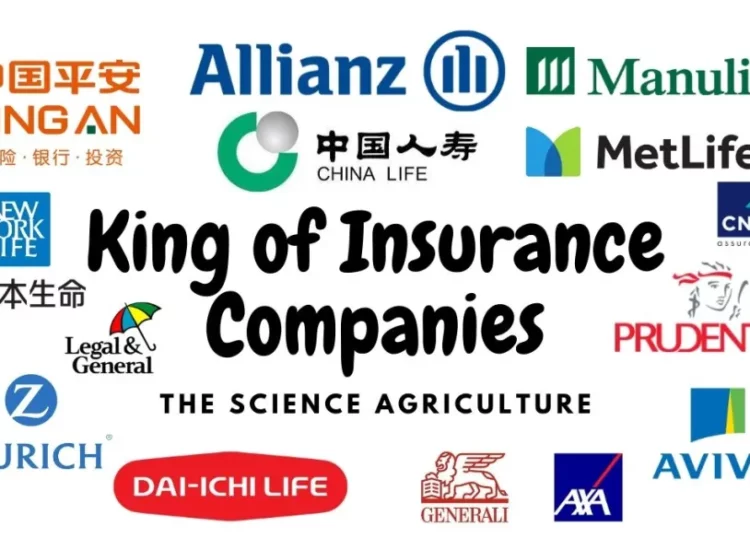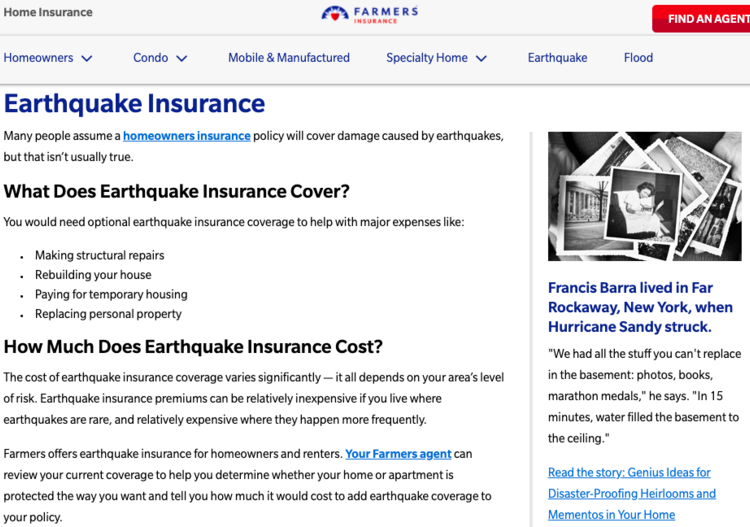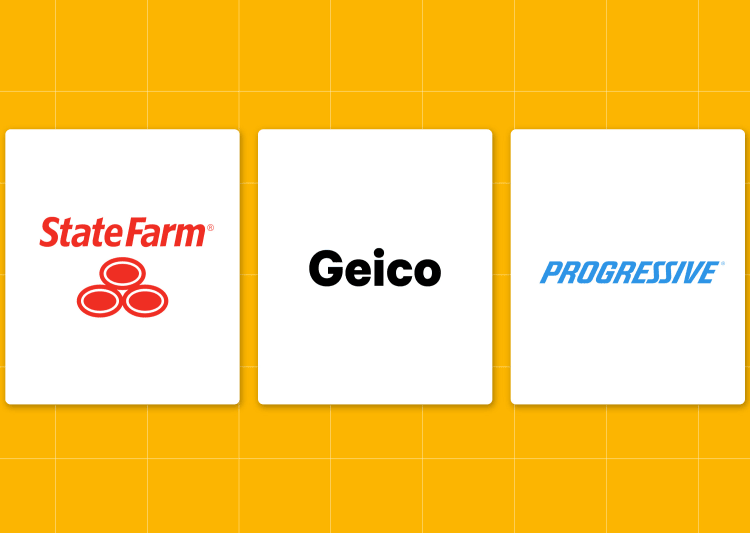Navigating the landscape of student loans can be daunting, especially for recent graduates stepping into a complex financial world characterized by fluctuating interest rates and evolving repayment options. With the average student loan debt hovering around $37,000, securing the best student loan rates in 2024 is more crucial than ever. This guide aims to equip graduates with the knowledge and tools necessary to minimize their debt burden and maximize their financial health.
Toc
- 1. Understanding the Student Loan Landscape in 2024
- 2. Private Student Loans: Supplementing Your Financing Strategy
- 3. Refinancing Student Loans: A Strategic Approach
- 4. Nelnet and Student Loan Servicing: What You Need to Know
- 5. Related articles 02:
- 6. Leveraging Online Resources for Loan Research
- 7. Practical Tips for Securing the Best Student Loan Rates
- 8. Conclusion: Your Path to Smart Student Loan Management
- 9. Related articles 01:
In 2023, the pause on federal student loan repayments ended, leading many borrowers to reassess their financial situations and consider their options. As interest rates are anticipated to rise in the future, understanding the intricacies of federal and private loans is paramount for making informed decisions about student debt management.
Understanding the Student Loan Landscape in 2024

As we delve into 2024, the student loan landscape continues to evolve, influenced by changes in federal policies, market trends, and economic conditions. Recent graduates are faced with unique challenges in managing their student debt, particularly with the fluctuations in interest rates that can significantly affect long-term financial stability.
Federal Student Loans: Your Foundation for Affordable Financing
Federal student loans are a critical component of many graduates’ financial strategies. In 2024, borrowers have access to several types of federal loans, each with its unique features and benefits.
Types of Federal Student Loans and Their 2024 Rates
- Subsidized Direct Loans
- Interest Rate: 5.99%
- Benefits: No interest accrual while in school or during grace periods, making these loans especially beneficial for students demonstrating financial need.
- Best for: Students who qualify based on financial need.
- Unsubsidized Direct Loans
- Interest Rate: 6.53%
- Characteristics: Interest begins accruing immediately, which can lead to higher overall costs if not managed properly.
- Available to: All students, regardless of financial need, providing broader access.
- PLUS Loans
- Interest Rate: 8.05%
- Designed for: Graduate students and parents of dependent undergraduates. These loans help cover costs exceeding the limits of subsidized and unsubsidized loans.
- Requires: A credit check, with additional qualification criteria.
Understanding the various repayment plans available for federal student loans is essential for effective debt management. Graduates can choose from several repayment options:
- Standard Repayment Plan: Fixed monthly payments over a ten-year period. This plan generally results in the lowest total interest costs.
- Graduated Repayment Plan: Payments start low and increase every two years, designed for those expecting income growth. The repayment period is also ten years, but total interest paid may be higher.
- Extended Repayment Plan: Allows borrowers to stretch payments over 25 years, either with fixed or graduated payments. This option can significantly reduce monthly payments but increases total interest costs.
- Income-Driven Repayment (IDR) Plans: Monthly payments are adjusted based on income and family size, making these plans suitable for graduates entering lower-paying jobs. After 20-25 years of consistent payments, borrowers may qualify for forgiveness of any remaining balance.
Federal Loan Forgiveness: Hidden Value in Your Loans
Many graduates overlook significant advantages associated with federal loan forgiveness programs:
- Public Service Loan Forgiveness (PSLF)
- Forgiveness Process: This program forgives the remaining balance after 120 qualifying payments, particularly beneficial for those in government or non-profit sectors.
- Eligibility: Borrowers must be employed full-time by a qualifying employer and make payments under a qualifying repayment plan.
- Income-Driven Repayment (IDR) Plans
- Payment Adjustments: These plans adjust monthly payments based on income, making them a good option for graduates entering lower-paying jobs.
- Potential Forgiveness: After 20-25 years of consistent payments, borrowers may be eligible for forgiveness of any remaining balance.
Pros and Cons of Federal Student Loans
When evaluating federal student loans, it’s vital to weigh both the advantages and disadvantages:
Pros:
- Government Backing: Federal loans are backed by the government, providing security and trustworthiness.
- Flexible Repayment Options: Graduates can choose from various repayment plans tailored to their financial situations.
- Loan Forgiveness Programs: Opportunities for forgiveness can significantly reduce the burden of student debt.
Cons:
- Interest Rates: Federal loans may have higher interest rates compared to private loans, particularly for borrowers with excellent credit.
- Limited Flexibility: Federal loans have strict eligibility criteria and repayment terms that may not suit every borrower’s needs. While federal loans offer government backing, they may not always provide the lowest interest rates compared to private loans for high-credit borrowers.
Private Student Loans: Supplementing Your Financing Strategy
While federal loans provide a solid foundation for financing education, private loans can play a crucial role in supplementing funding needs. Borrowers who require additional financing beyond federal loans may consider private student loans.
Top Lenders for Best Student Loan Rates in 2024
Here are some notable private lenders to consider for securing the best student loan rates:
- College Ave Student Loans
- Known for: Competitive rates and flexible repayment options, making them a popular choice among graduates.
- Features: Offers various loan terms and the ability to defer payments while in school.
- Discover Student Loans
- Offers: Competitive interest rates and a unique feature that provides cash rewards for good grades, incentivizing academic performance.
- Repayment Flexibility: Multiple repayment term lengths and options for in-school payment plans.
- Sallie Mae
- Reputation: A well-established lender in the student loan market, offering a wide range of loan products.
- Special Offers: They often have promotions for borrowers with excellent credit scores.
The Importance of Comparing Private Loan Offers
Carefully comparing private loan offers is essential for securing the best student loan rates. One crucial factor to consider is the Annual Percentage Rate (APR), which reflects the total cost of borrowing, including interest rates and any associated fees. A seemingly minor difference in APR can lead to substantial changes in the total amount repaid over the life of the loan.
For example, a loan of $30,000 with a 5% APR compared to one with a 4% APR may result in nearly $2,000 in additional interest over a ten-year repayment period. Therefore, thorough comparison shopping is vital for borrowers to ensure they receive the most favorable terms.
Key Factors Influencing Private Loan Rates
When seeking private loans, several key factors can influence the rates offered:
- Credit Score: Lenders typically offer lower interest rates to borrowers with higher credit scores. A score above 700 is often considered good, while a score above 750 is excellent.
- Income Stability: A stable income demonstrates your ability to repay the loan, making you a more attractive candidate to lenders.
- Co-signer Quality: Having a co-signer with a strong credit history can significantly improve your chances of approval and help secure better rates.
- Loan Amount and Term Length: The amount borrowed and the length of the repayment term can also affect the interest rate. Generally, shorter terms come with lower rates but higher monthly payments.
Pros and Cons of Private Student Loans
While private loans can offer competitive rates, they come with their own set of advantages and disadvantages:
Pros:
- Potentially Lower Rates: For borrowers with excellent credit, private loans may provide lower interest rates than federal loans.
- Flexible Terms: Many private lenders offer various repayment options, including deferred payments while in school.
Cons:
- Lack of Government Protections: Private loans do not offer the same borrower protections as federal loans, such as income-driven repayment plans and loan forgiveness.
- Stricter Eligibility Criteria: Private lenders often have more stringent requirements for approval, making it harder for some graduates to qualify. Additionally, borrowers with poor credit may face higher interest rates and limited options.
Refinancing Student Loans: A Strategic Approach
Refinancing student loans can be an effective strategy for graduates to manage their debt and potentially lower their interest rates. However, this decision requires careful consideration and an understanding of the associated risks.
What is Refinancing?
Refinancing involves taking out a new loan to pay off one or more existing loans, ideally at a lower interest rate. This process can consolidate multiple loans into a single payment, simplifying monthly obligations for borrowers.
When Refinancing Makes Sense
Refinancing is most beneficial in specific scenarios, such as:
- Graduates with High-Interest Private Loans: If you initially took out loans with high-interest rates, refinancing can help secure a lower rate.
- Streamlining Repayment: Consolidating multiple loans into one can simplify repayment and reduce the number of monthly payments.
- Improved Credit Score: If your credit score has improved since taking out your original loans, you may qualify for better rates.
Finding the Best Student Loan Rates Refinance
Several lenders offer competitive refinancing options for graduates. Researching and comparing rates from different lenders is essential for securing the best deal. Look for lenders that provide low fixed or variable rates, as well as flexible repayment terms.
Risks of Refinancing
While refinancing can offer advantages, borrowers should also consider potential downsides. For instance, refinancing federal loans results in the loss of government benefits, such as loan forgiveness programs and income-driven repayment options. Graduates must assess their financial situations carefully before proceeding with refinancing.
Nelnet and Student Loan Servicing: What You Need to Know
While Nelnet primarily serves as a loan servicer rather than a direct lender, understanding their role can help graduates manage loan repayments more effectively. They handle administrative tasks for many federal and private student loans, providing payment processing and customer support.
Nelnet offers various services to help you manage your student loans:
1. https://baohotbc.com/mmoga-debt-consolidation-vs-personal-loan-understanding-your-options/
2. https://baohotbc.com/mmoga-finding-the-best-student-loan-servicer-in-2024-a-comprehensive-guide/
3. https://baohotbc.com/mmoga-bad-consolidation-credit-debt-loan-your-roadmap-to-financial-recovery/
4. https://baohotbc.com/mmoga-unlock-your-homes-potential-navigating-home-equity-loan-credit-unions/
- Payment Management: Nelnet allows borrowers to make payments online, set up auto-pay, and manage their accounts easily.
- Repayment Plans: They provide information about different repayment options available for federal loans, including income-driven repayment plans.
- Customer Support: Nelnet’s customer service can assist borrowers with questions regarding their loans, repayment options, and account management.
Leveraging Online Resources for Loan Research
Best Student Loan Rates Reddit Communities
Online forums like Reddit offer valuable insights from real borrowers.
- r/StudentLoans: This subreddit provides current experiences and advice on student loans. Users often discuss their experiences with various lenders, share tips on securing the best rates, and provide support to one another.
- Discussions on Refinancing: Many users share their refinancing journeys, detailing the lenders they chose and the rates they secured, which can help you make informed decisions.
Other Online Resources
In addition to Reddit, several reputable websites and forums provide valuable information about student loans:
- Federal Student Aid: The U.S. Department of Education’s official site offers comprehensive information on federal student loans, including eligibility requirements and repayment options.
- NerdWallet: This financial resource provides comparisons of student loan rates, lender reviews, and tips on managing student debt.
- The College Investor: Focused on helping students and graduates navigate student loans and investing, this site offers practical advice and resources.
Practical Tips for Securing the Best Student Loan Rates
Finding the best student loan rates requires proactive measures and informed decision-making. Here are some practical tips to help graduates secure favorable loan terms:
Improve Your Credit Score
A strong credit score is vital for obtaining the best student loan rates. Graduates should take steps to improve their credit scores by:
- Paying Bills on Time: Consistent, on-time payments positively impact your credit history.
- Reducing Credit Card Balances: Keeping credit utilization low can improve your credit score.
- Avoiding New Debt: Limiting new credit inquiries can help maintain a healthy credit profile.
Shop Around and Compare Offers
One of the most effective ways to secure the best rates is to shop around. Graduates should obtain quotes from multiple lenders to compare interest rates, terms, and fees. Online tools and platforms make it easier to compare loan offers side by side, ensuring that borrowers find the best fit for their financial situations.
Consider Co-signers
For those with less-than-stellar credit, having a co-signer can significantly enhance the chances of loan approval and securing better rates. Co-signers should have good credit and a stable income, providing additional reassurance to lenders.
Understand Loan Terms
Before signing any loan agreement, it’s crucial for graduates to thoroughly understand the terms, including interest rates, fees, and repayment conditions. This knowledge empowers them to make informed choices and avoid potential pitfalls.
Conclusion: Your Path to Smart Student Loan Management
Finding the best student loan rates is essential for managing your post-graduate finances. By understanding the differences between federal and private loans, exploring refinancing options, and actively improving your credit, you can significantly reduce your long-term debt burden.
Researching lenders, comparing offers, and understanding the terms before committing to a loan will set you on a path to financial stability. Start your research today to find the best student loan rates for your unique situation. Utilize online resources effectively, and don’t hesitate to seek professional financial advice if needed. Your proactive approach to managing student loans will pave the way for a more secure financial future.
2. https://baohotbc.com/mmoga-unlock-your-homes-potential-navigating-home-equity-loan-credit-unions/
3. https://baohotbc.com/mmoga-finding-the-best-student-loan-servicer-in-2024-a-comprehensive-guide/
4. https://baohotbc.com/mmoga-bad-consolidation-credit-debt-loan-your-roadmap-to-financial-recovery/
5. https://baohotbc.com/mmoga-debt-consolidation-vs-personal-loan-understanding-your-options/










